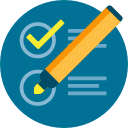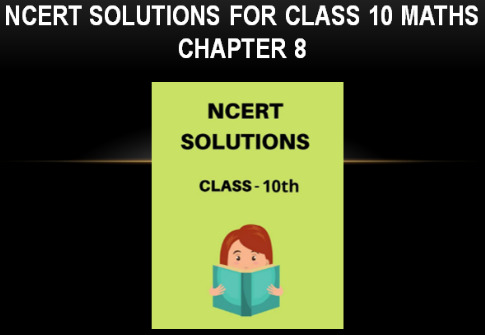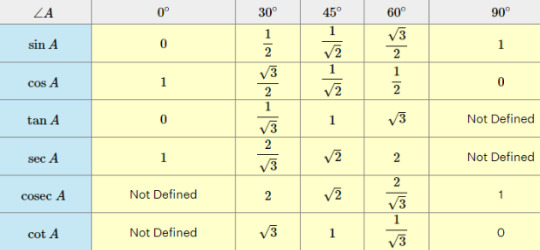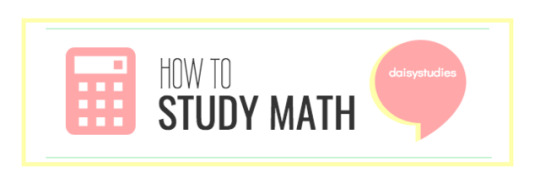#trigonometry formulas for class 10
Explore tagged Tumblr posts
Text
Trigonometry Formulas
Trigonometry is a branch of mathematics that deals with the relationships between the angles and sides of triangles. It’s a fundamental topic in mathematics and finds applications in various fields, from physics and engineering to astronomy and navigation. To master trigonometry, one needs to be well-versed in its numerous formulas and identities. In this comprehensive guide, we will explore a wide range of trigonometry formulas, making them accessible and understandable. Whether you’re a student looking to ace your trigonometry exams or a professional seeking to apply trigonometric principles in real-life scenarios, this article has got you covered.
Trigonometry Formulas List:
Let’s kick things off by presenting a list of the fundamental trigonometry formulas that we will delve into in more detail:
Basic Trigonometric Function Formulas
Reciprocal Identities
Trigonometry Table
Periodicity Identities (in Radians)
Cofunction Identities (in Degrees)
Sum & Difference Identities
Double Angle Identities
Triple Angle Identities
Half Angle Identities
Product Identities
Sum to Product Identities
Inverse Trigonometry Formulas
Trigonometry Formulas from Class 10 to Class 12
Trigonometry Formulas in Major Systems
#Triple Angle Identities#Trigonometry Table#trigonometry formulas pdf#Trigonometry Formulas List#trigonometry formulas for class 12#trigonometry formulas class 10#trigonometry formulas
1 note
·
View note
Text
Guide to High School Tutoring Services for Year 11 and 12 Success
High school tutoring services are nowadays becoming quite important due to increased competition among students to perform better in academics in HSC exams. When it comes to the biology subject, the syllabus is structured to develop students’ understanding of biology as a science, focusing on core topics such as cells as the basis of life, genetic inheritance, and ecosystem dynamics in Year 11. When students progress to Year 12, the syllabus delves deeper into heredity, biological diversity, and contemporary biological advancements.
Similarly, maths is another crucial subject that many times students find difficult to grasp due to insufficient understanding of the basics. Maths tutoring in such cases becomes very crucial and in the Year 11 advanced course, one understands deeply concepts like differentiation, functions, further differentiation, and trigonometry. Also, practice is quintessential for subjects like maths as one needs to try out exam-style questions to get the best results. With mock exams, one not only practices the right questions but also gets the real feel of an exam and hence this makes one more comfortable to face the real exam.

Mathematics is not just about learning formulas as this will not be enough to score well in exams rather one must be well-versed in the proper layout of proofs and mathematical work to score well in exams. Similarly, physics is another subject that requires not just memorising the concepts but also a deeper understanding of the fundamentals for getting the best results in exams. For the HSC exams of physics, one must prepare themselves well in both Year 11 and Year 12. The Year 11 syllabus consists of units of kinematics, mechanical waves, dynamics, non-mechanical waves, thermodynamics, and electricity and magnetism.
In Year 12 physics the syllabus consists of advanced mechanics, electromagnetism, the nature of light, and from the universe to the atom. Both the years’ courses offered by leading tutoring centres have 11 weeks of tutoring and also there are exams at the end to get the students familiarised with the exams.
The leading HSC tutoring centres have the best results when it comes to HSC exams. Get in touch with the leading tutoring centres for your child enrolled in tutoring classes for Years 7, 8, 9, 10, 11, or 12.
Source
1 note
·
View note
Text
#trigonometric formulas list#trigonometry formulas list#application of trigonometry#trigonometry formulas#trigonometry formulas for class 9#trigonometry formulas for class 10#trigonometry formulas for class 11#trigonometry formulas for class 12#trigonometry formulas for class 9 to 12
0 notes
Note
I noticed mathy looking notes in your post earlier. I've just returned to school after a 10 year break and I've never been particularly good at math. I'm taking a remote double time math course over the summer semester that starts in a few weeks and I'm a bit nervous as I've never taken math remotely. Do you have any pro-tips? :)
Hello! Tbh I don't think I'm the best person to ask for tips related to math, considering I barely just pass all my math courses. But I haven't failed any so yes. Disclaimer: I don't really know what remote learning is, but I'll assume it's similar to either the online classes we took during covid, or pre-recorded classes which we can watch later on. So my tips will be considering these two scenarios.
First of all, I think it depends on what course you're taking. Is it a specific course, like linear algebra, geometry, calculus, or any of the sort. If it is, I'd advise you brush up on the basics of those once (i.e. trigonometry and stuff for geometry, limits and all for calculus etc). Although I am sure your teacher will definitely go over the basics, most of the times the difficulty in solving maths lies in not being able to understand the basics.
If your math course is a non-specific course, whenever they start a new topic, they'll probably provide some basic info. Same as above, always understand that first. A lot many times in maths, I have come to realize, you can solve a lot of questions by knowing just basics, and not formulae.
Second, Solve questions. This is something I myself don't do often (thus the barely passing marks) and karma has bit my ass a lot many times for this. Maths is a skill, and you can only hone it by doing as much problems as you can. Now, don't overwork yourself and stress over all questions, sometimes some just don't solve no matter what you try.
You don't need to do every question in your practice problem sets, just to the most varied one. That is, if two questions have a similar approach for an answer and you know how to get to the solution after doing one, don't do the other. You can save that time and brain space for a different question which has a slightly different approach. Warning: some questions look solvable but then you sometimes get stuck on it halfway, be careful while judging which questions you know and can skip.
Third, make notes. It seems basic enough but I don't just mean the lecture notes. Make a separate sheet of just formulae or theorems which you require. You can use that sheet when you're solving practice questions. As you keep solving, you'll realize after a while you wouldn't need that formulae sheet at all. And if your examinations allow cheat sheet, you've already made one!
Fourth, google. Don't know the question, google the entire question word for word. Don't know a concept, google it. Can use chatgpt? Use it. Be honest when you're practicing, but when you can't understand or solve a question, be honest and just google it. 8/10 times the answer (or related similar question's answer) will always be there.
On the same note, youtube has some really good teachers. I do not know what level course you're taking, but Khan Academy and Organic Chemistry Tutor's videos has helped me way into two years of college. You can try these channels, or you can try other ones you find and like, too!
Lastly, find past questions. This is an occupational disease (if you can call it that) which has been ingrained into me after high school and the ridiculous amount of college entrance exams I had to give. Also Asian. Definitely also because I'm Asian. Questions which come in the exam are barely anything which you use practical knowledge for. I have done many many projects with my friends and none of us have ever used maths in the way we use and write in exams. Exam taking is a skill (I am bad at it) and it measures how good you are at taking an exam than how good you are at the subject. Sadly they do in the end judge us based on scores, so past year's question papers is absolutely necessary! A lot of times the questions are similar (my quantum mechanics midsem was the exact same as the previous batch's only the values were different. Same question, same concept, same approach to solution.) This will definitely give you an upper hand at solving exam questions.
And that's it! That's all I can think of right now. But please remember, learning is unique to each individual. What works for me may not work for you. Always, tweak and twist and experiment on what works best for you, and go with that. Sometimes it's exhausting, and it's okay if you spend an entire day binging a show (definitely not speaking from experience, nope). Just know that the next day, you'll pick up your pen and continue on your journey with maths!
TL;DR: brush up on basics, practice questions, use google and youtube to it's fullest, get past year exam papers, take rests and don't feel guilty, it's alright sometimes.
With that being said, thank you for the ask! I hope your course goes amazing and you have a wonderful time with it!!!!!!
Happy learning!
#studyblr#study#studying#studyspo#studyinspo#tips#study tips#maths#mathematics#mathematics tips#study motivation#honestly the day i got this ask i was crying over how much i dislike maths ldskfdsklf#(and the one crying with me was a math major so)#ask#misa's undergrad journey
11 notes
·
View notes
Text
How to create a revision timetable

Hi! I find that a timetable has helped me immensely to organise my revision. Here is a step-by-step guide to creating a revision timetable for your studies.
Step 1: Get your specification/syllabus and figure out what you need to study and how
List all the topics that might appear in the exam. If that is the entire subject, then so be it. Do this so you can see exactly what you are dealing with.
Prioritise. Figure out what the most important topics are, and also what your weaknesses are, and highlight them.
Find out what the most effective, time efficient study methods there are for your subject. For example, for subjects like history and english literature, flashcards and essay plans might work best. This is important, because you want to be as efficient as possible.
Figure out how long it will take to finish studying each topic. Be very generous. Overestimating how long it will take will hurt you less than underestimating it will.
Step 2: Decide how long each study session will be, and create a study routine
You will not need to do more than a maximum of 4 hours a day. In fact, I’d say 2 hours is enough for each day. Look at your free time, and evaluate your own skills and discipline. Then, decide how many subjects you will study a day and for how long. When I was doing my GCSEs, I spent 30 minutes on a subject a day with a 5 minute break. I covered 5 subjects a day. Try to work out something like that depending on how much time you have.
For your subjects/classes, make a table that lists all your subjects and the best revision methods for each.
Separate the study methods into “memorising/learning/understanding” (flashcards, mind maps, YouTube videos, extra reading, blurting etc.) and “exam technique/practice” (practice questions, essay plans, practice essays, past papers and mark schemes etc.).
On your table, insert a column for study routines, and make a routine for each study session.
Split study sessions into working on “memorising/learning/understanding” and “exam technique/practice”. Reserve more time for “exam technique/practice”. For example, in a 30 minute study session for English literature, your routine could look something like this: Work on understanding text through memorising quotes/analysis and watching YouTube videos (10 minutes), write essay plans or a couple of paragraphs of an essay (20 minutes).
Be aware that your routine should change and become more practice heavy the closer you get to exam season.
Also, work out which subjects you need to review for every day, and what you can reserve for other occasions. For example, you need to learn and review vocabulary every day for languages, and you also might want to review maths formula daily too.
Step 3: Gather your resources
Find as many free pre-made ones that you can (Quizlet flashcards, older students old notes).
Gather your own textbooks, notes and revision guides and decide what will be the most useful for you.
Step 4: Create a schedule
Create a table that cuts each week until your exam into 30 minute segments
Put all of your classes, clubs, jobs etc. into the table. If there are any events that will happen, put them in there too.
Put your revision time into the times of the day you work best at.
Schedule in breaks and make sure you have a cut off point in each day where you stop working completely and just relax. Also, schedule in planning time, and exercise (at least 3 times a week).
Then create another table where you list the weeks you have left until your exam, and then list what you will do for each day of each week (e.g. Week 1: Monday - trigonometry questions, review French unit 1, reread a christmas carol Stave 1. Tuesday - Seneca learning unit 3 biology, past paper question for history…. etc.)
Start off with your weakest areas, and then work your way back to your easier ones.
Leave a few days and periods for catch up work.
Make sure you’re regularly reviewing your subject, just to keep the knowledge fresh in your head.
Dedicate your last few days/weeks to practicing your exam technique.
Thanks for reading this post! I hope it was somewhat useful to you.
101 notes
·
View notes
Text
Should I take the ACT or SAT?

Every student will encounter a college placement test before at one point during his or her high school career. The choice is between the ACT & SAT. Some students score substantially higher on the SAT, while others fare a lot better on the ACT. This is why it is highly recommended that students understand the differences between the format of the two tests.
What are the differences between the two?
Questions in ACT tend to be more straightforward.
There is a stronger emphasis on vocabulary in SAT.
The writing test is optional in ACT, but something that is required by many colleges.
SAT does not have a Science section, but the ACT does.
Advanced math concepts are added to the ACT test including Trigonometry.
Content areas in SAT are broken up into 10 sections but are delivered in four multiple-choice sections on the ACT.
Changes to the SAT
Are you leaning towards SAT? Know that major changes in Online Sat prep Classes which will be released come spring 2016. According to College Board President and CEO David Coleman, the test is changing because it has become “far too disconnected from the work of our high schools. They’re too stressful for students, too filled with mystery and “tricks” to raise scores and aren’t necessarily creating more college-ready students”.
The new Sat Training standardized test will now have four sections — Math, Evidence-based Reading, Writing, and an optional essay. “We are not interested in students just picking an answer, but justifying their answers”, Coleman added. This shows that the SAT in 2016 would be more challenging than the previous one.
Changes to the ACT
It doesn’t mean that taking the ACT will be an easier option because the test went through changes as well. The revisions to the ACT will be released earlier than that of the SAT. Come fall 2015, the exam will have an enhanced writing test. In the following Spring of 2016, constructed-response subject tests, online administration, new reporting categories, and new readiness scores and indicators will also be introduced to the ACT. Similar to the SAT, redesigning the ACT also aims to benefit students.
So which test should you take? Familiarize yourself with both formats and take one practice test from the ACT and SAT to see if there are major differences in the scores. Remember that it still comes down to which test suits your abilities. Regardless of changes to the exams, your preparation is what will determine whether you will be ready come the day of the test.
When Should I Start Preparing for the ACT?
There is no perfect time to begin studying for the Act Prep Classes. Many students tend to have a rigorous junior year with honors or AP classes. With a school year packed with classes and extracurricular activities, it is difficult to find a few minutes to spare every day.
This is what makes the Summer before Junior Year an optimal time to start taking practice tests, going over different content topics, and, if necessary, joining a prep course. Enough time is available to go over math formulas, reading section strategies, grammar principles, etc. Many tests can be taken during the summer to make sure you are gaining endurance for the actual test. Yes, the summer is meant for a break from school and a catch-up for all those naps that you missed out on during the school year. However, would you rather take multiple practice tests during the school year? Does it make sense to cram in ACT review when you have so much homework to finish every day?
This is why I always recommend getting a head start before junior year. You will be able to take your first ACT test during the Fall of Junior Year. Once you get your score you have many options to take another test, if needed, in the Winter months or Spring. This gives ample time to raise your score and reach the goal you have set.
If you have any queries, then visit the clear path’s online portal & choose the Best Prep Course now!
2 notes
·
View notes
Text
NCERT Solutions For Class 10 Maths Chapter 8

Class 10 maths chapter 8 is Introduction to Trigonometry. Trigonometry is one of the important and scoring chapter of class 10. But most of the children face problems during solving the trigonometric equation and learning the formulas. Reminding the trigonometry formula always be the trouble, but there are some simple tips to solve the trigonometry formulas.
Tip 1) Always Start from the More Complex Side.
Tip 2) Express everything into Sine and Cosine.
Tip 3) Combine Terms into a Single Fraction.
Tip 4) Use Pythagorean Identities to transform between sin²x and cos²x.
Tip 5) Know when to Apply Double Angle Formula (DAF)
Topic Names of Chapter 8
8.1 Introduction
8.2 Trigonometric Ratios
8.3 Trigonometric Ratios Of Some Specific Angles
8.4 Trigonometric Ratios Of Complementary Angles
8.5 Trigonometric Identities
8.6 Summary
Who is known as Father of Trigonometry
The first known table of chords was produced by the Greek mathematician Hipparchus in about 140 BC. Although these tables have not survived, it is claimed that twelve books of tables of chords were written by Hipparchus. This makes Hipparchus the founder of trigonometry.
Trigonometry Formulas
Here are some important trigonometry formulas for class 10 chapter 8, which will definitely work during the time of exams. The formulas chart is given below-

1 note
·
View note
Text
How to get prepared for ACT mathematic test?
How to study for the ACT math test1. Choose your study program2. Consider math positively3. Make the concepts clear4. Practice daily5. Choose online classes and tutor if you would like6. Remember the formulas well
The American College Testing Organization (ACT) has been judging student’s potential concerning academics since 1959. ACT may be a standardized test used for school admissions within the US. In essence, it's a broad and quick assessment of students’ academic abilities.
The ACT is split into four major segments.
English
Reading
Mathematics
Science
The ACT also comprises an optional 40-minute Writing Test.
In this assessments all questions are weighted an equivalent. you furthermore may need to confine mind that the harder questions are randomly thrown around within the test. You’ll prefer to jump the tougher tasks and ace out the simpler questions within the tests first.
There are 60 Mathematics questions on ACT and students have hour to answer the questions. The Mathematics section of the ACT contains multiple choice questions. ACT permits the utilization of private calculators on the maths portion of the test.
ACT Mathematics cover the subsequent topics:
Pre-Algebra (20-25%)
Elementary Algebra (15-20%)
Intermediate Algebra (15-20%)
Coordinate Geometry (15-20%)
Plane Geometry (20-25%)
Trigonometry (5-10%)
1. How to study for the ACT math test
Some students might imagine that the ACT test is difficult, but they will be assured that with complete mastery of the test resources, proper study method, accurate practice, not only is it not inaccessible, but students also can achieve an excellent score for a satisfied career.
If you plan to participate the assessment, here may be a step-by-step guide to assist you steel oneself against math trial.
There are many useful ACT Math books and study guides which will assist you steel oneself against the test. All major test preparation companies have some offerings for the ACT Math, and therefore the short-listing of the simplest book finishes up being a puzzling phenomenon. There also are many online ACT Math courses.
2. Consider math positively
The first thing you would like may be a positive outlook on math. this attitude helps you to simply accept math problems with an open mind and it prepares you to find out better and thus get a far better score on the ACT test. So, don't take math as a hassle that you simply should get obviate as soon as possible.
3. Make the concepts clear
If you've got not yet started learning the required PREP lessons for ACT, it's better to start out by learning the essential concepts of ACT like the essential concepts of geometry and therefore the concept of basic pre-algebra, which incorporates concepts like fractions, decimals, integers, square roots, ratio, etc. Once you've got prepared for the essential concepts, it’s time to enter the advanced stage of learning, which incorporates more complex concepts like elementary algebra, intermediate algebra, analytic geometry , geometry and trigonometry. Remember that learning must be step-by-step. If you encounter advanced level problems without knowing the essential concepts, you'll find them difficult and you'll become discouraged and frustrated from learning them.
4. Practice daily
No matter how talented you're in math, you would like daily practice to enhance your skill and speed on it. The examination consists of 60 questions that have got to be answered in hour. In fact, there's one minute for every question. So, the important thing that creates you successful during this test is that the high speed of action and timely decision, which may be a skill which will be achieved with daily practice. Daily practice improves your skills and leads you to your required score on the ACT test.
5. Choose online classes and tutor if you would like
There are some ways to organize for the ACT test. For a few takers, participating in prep classes and using prep books are often effective. Sometimes, direct learning through tutors accelerates the training process. In prep classes, candidates become more conversant in the small print of the prep test and the way to organize for it. Tutors will guide you thru the small belongings you might not know.
6. Remember the formulas well
Be aware that within the ACT college test prep you are doing not have the proper to possess formula sheets, so before the exam, you ought to confirm that you simply have memorized the required formulas for algebra, geometry and trigonometry. However, this doesn't mean that you simply need to worry about not having a formula sheet. Most of the formulas required within the test are simple formulas that you simply have probably seen and used repeatedly. There could also be just one or two questions that require a posh formula to unravel. So all you would like to try to is practice enough and keep the formulas in mind. Remember to review them well the day before the test and confirm you recognize the uses of every one well. This may assist you to recollect the formulas well on the day of the test.
2 notes
·
View notes
Photo

hey guys!!
so i love math as much as the next guy, but i think we can all agree that it is one of the hardest subjects to study for.
so, without further ado, here are some tips on how to study math!
1. - ̗̀invest in a whiteboard! ̖́- the most helpful tool i used in AP calc was my giant whiteboard. this way you can go through practice problems quickly (and let’s be real- white boards are more fun than paper).
2. - ̗̀watch youtube videos on the topic you’re studying! ̖́- never underestimate the power of a good khan academy video. these will not only give you an explanation of the topic other than what your teacher gave you, they will also give you more practice problems to work on.
3. - ̗̀don’t just learn how to do each topic, learn the theorem! ̖́- if you learn WHY something is rather than HOW something is, it’ll make more sense to you and make working out the problem a little more clear. there are youtube videos explaining this!!
4. - ̗̀create a unit “cheat sheet”! ̖́- i did this throughout high school and it saved my life. at the end of each unit, or as you go along, create a cheat sheet by listing each topic within the unit, the formulas needed for the topics, how to do each problem, the theorem, etc.
5. - ̗̀review old quizzes! ̖́- the mistakes you make on your quizzes you are likely to make on the test. review the quizzes, rework the problems, and fix your mistakes! quizzes also give a good preview of what’ll be on the test.
6. - ̗̀find your notes from old classes! ̖́- are you in calculus, but you’re having trouble remembering the unit circle from trigonometry? go to your old notes. trust me.
7. - ̗̀take your time when practicing problems! ̖́- if you go quickly, you’re more likely to make silly mistakes. take your time, even if you don’t have a lot of it, so you can focus on how to do each problem rather than the small mistakes you make.
8. - ̗̀make a quizlet for your formulas! ̖́- studying for math the night before the test would be a lot easier if you already had the formulas memorized, right? make the quizlet in advance and flip through it while you’re in the car, in line, etc.
9. - ̗̀quality over quanitity! ̖́- while doing practice problems, don’t just do a bunch of basic questions. that’s a huge waste of time. do a couple at each difficulty, so you aren’t wasting your time on doing a bunch of questions you know you can do.
10. - ̗̀make a study plan! ̖́- using the cheat sheet i mentioned in number 4 or just a list of topics on the exam you are studying for, create a study plan that covers a couple of topics each day. this way you can thoroughly delve in to each one without overworking yourself the night before the test.
i hope these help! if you have anything you like to do but that i didn’t include, please reblog with them to help some students out!
as always, thanks for reading x
#mine#study#studying#math#studying math#how to study#studyblr#study tips#studyspo#study inspo#study inspiration
2K notes
·
View notes
Link
All trogonometry formula for class 10
download pdf for trigonometry formula
1 note
·
View note
Text
CBSE Class 11 Courses Module
Class 11 is the first step in the career. It is generally considered more difficult than class 12. The reason for this is, the study of class 11 is way different from that which students studied till class 10. So, several times it happens that students are unable to cope up with all the subjects together. Hereby, Edubull presents 11 different subjects for students to study according to their interests and stream. The following are the subjects available.
Maths - consist of Sequence and Series, Complex Numbers, Basic Arithmetic and Algebra, Transformation of Equations, Trigonometry, Coordinate Geometry, Circle, Hyperbola, Limits, Differentiability.
Maths Resources-I - Contains Sets, Relations and Functions, Trignometry, Mathematical Induction, Complex Numbers, Linear Inequalities, Permutation & Combination, and Binomial Theorem.
Maths Resources-II - Includes Sequence Series, Straight Lines, Conic Sections, Three Dimensional Geometry, Limits and Derivatives, Mathematical Reasoning, Statistics, and Probability.
Maths resources-III - Illustrates the concept in a very interesting manner which helps the student to understand the concept instead of mugging up formulas.
Maths resources-IV - Focus on more and more practice of sums and give easy ways to solve complicated questions.
Maths resources-V - Provides students the animated videos to learn with even more interest.
Maths resources-VI - Solves the questions in a manner that motivates the students to practice more.
Pre-Algebra - Provides more knowledge about whole number, number concepts, and integers for a better understanding of concepts.
Probability Resources - Is customized only for probability and covers the whole probability concept of class 11.
Arithmetic Maths Resources - Help the students who want to learn about Math 20 - Arithmetic Review.
Algebra Resources - Is customized for algebra lovers and provides a vast knowledge of algebra.
8 Modules to Learn
Every student either faces problems in organic or in inorganic chemistry. Edubull has divided chemistry into 8 modules to make all the branches of chemistry easy for the students.
Chemistry-I - Includes Atomic Structure Part - I, Atomic Structure Part - II, States of Matter, Chemical Bonding, Nuclear Chemistry, Electrochemistry, and Structure of atom.
Chemistry-II - Provides students with complex chemistry concepts like Classification of Elements and Periodicity in Properties, Chemical Bonding, and Molecular Structure, States of Matter in a simplified manner and provides suitable notes of the same.
Chemistry Resources-I - Explains all the concept of class 11 chemistry with several examples and make it way more interesting.
Chemistry Resources-II - Provides an explanation of concepts through animations which makes it interesting for the students to gain the knowledge as well as to learn.
Organic Chemistry Resources-I - Covers 3 chapters of organic chemistry, that are- some basic principles and techniques, hydrocarbons, and environmental chemistry.
Organic Chemistry Resources-II - Covers several topics to provide specialized knowledge for each of the topics i.e. Chirality, Newman Projections, Organic Chemistry Naming Examples, Sn Reactions, E Reactions, Comparing E2 E1 Sn2 Sn1 Reactions, Alcohols, Amine Naming Introduction, and Carboxylic Acid Introduction.
Chem Physical - Enhances the knowledge of students in physical chemistry in several topics which include Some Basic Concept of Chemistry, Atomic Structure, States of Matter, Equilibrium, Thermodynamics, and Redox Reaction.
Chemistry Inorganic Resources - Makes the inorganic chemistry easy for students by explaining Chemical Bonding and Molecular Structure, Classification of Elements and Periodicity, Hydrogen & Water, S Block Elements, and P Block Elements.
8 Modules to Explore Physics with a Wider Point of View
Physics is a weakness of many students. But the key to study physics is understanding each concept properly. Edubull teaches physics to the students in 8 modules.
Physics - Covers all the basic concepts of class 11 physics including Dimensional and Error Analysis, Introduction to Kinematics, Projectile Motion, Kinematics of Circular Motion, Particle Dynamics, Newton’s Law, Wave Motion, and Physical Properties of Waves.
Physics Resources-II - Gives various teaching aids, notes, and practice sessions of various topics which include Gravitation, General Properties of Matter, Thermal Properties of Material, Kinetic Theory of Gases, Oscillations, and Waves.
Physics Resources-III - Helps the students to build interest in physics by explaining different concepts with several examples and practical.
Physics-IV - Clarifies the concepts of topics covered in Physics of ICSE Standard with a lot of examples.
Physics Resources-V - This course is for those who want to learn the concepts of physics in an even more detailed manner.
Science - Clarifies the basic concepts of Theory and makes it more interesting for students in order to motivate students to study even more.
Thermodynamic and kinetic resources -This course is specialized for concepts of thermodynamic and kinetic physics.
Physics Animation - As the name suggests, explains the concepts through animations to make it more interesting. It includes introduction to nuclear reactor and introduction to magnetic field and magnetic field lines of force.
4 Modules to Make Biology more Interesting
However, biology is not that difficult to learn but for those who can’t just mug up and want to understand each and every concept with propper detail, edubull brings up biology in 4 modules.
Biology-I - Helps students to get an in-depth understanding of the basic concepts of topics of the biology of class 11.
Biology resources-II - Displays animated videos that grab the attention of the students who have no interest in the subject and have left it. It is also intended to help clarify the basic concepts of topics through illustrative interactive lectures and practical in a very interesting manner.
Biology resources-III - Illustrates different concepts through interactive lectures and enhance the student’s interest in the subject.
Biology resources-IV - Clarifies the most basic topics of biology.
4 Modules to get the Strategy for Accountancy
Every student gets frustrated when the entries at the last in the accounts answer does not match. Edubull provides you a platform where you can learn accounts in 4 modules and then you’ll easily be able to find your own mistake.
Accounts Resources (double entry book keeping part-1) - Explains several chapters in an easy way which include Introduction to Accounting, Basic Accounting Terms, Theory Base of Accounting, Bases of Accounting, Accounting Equation, Accounting Procedures, Origin of Transaction, Journal and Ledger, Special Purpose Books, Bank Reconciliation Statement, and Trial Balance.
Accounts Resources (double entry book keeping part-2) - Continues part-1 by including topics like Depreciation, Provisions and Reserves, Accounting for Bills of Exchange, Rectification of Errors, Adjustments in Preparation of Financial Statements, Accounts from Incomplete Records, and Computerised Accounting.
Accountancy - Explains the basic chapters of accounts of class 11 which include Accounting Equations, Journal Entries, Final Accounts, and Ledger Posting and Trial Balance.
Introduction to Financial Statement - Is specialized to learn the basic concepts of financial statements.
2 modules to Increase English Proficiency .
For English, edubull has made 2 modules, one of which explains in English and the other in Hindi.
Hornbill - Explains all the chapters of the textbook hornbill in a very interesting manner. The chapters include The Portrait of a Lady, A Photograph, We're Not Afraid to Die, The Voice of the Rain, Discovering Tut: The Saga Continues, Landscape of the Soul, The Browning Version, Childhood, and Father to Son.
Hornbill (Hindi) - Explains all of these in Hindi.
3 modules to Enhance the Skills in Informatics Practices.
For the IP lovers, edubull has made 3 modules to learn and practice.
How to build a computer - Provides students the basic knowledge of Computers and its parts, its importance, and various other basic information about computers so that the learner who is new to computers must learn about building a computer from the beginning.
SQL for beginners - Explains the basics and details of structured query language in both - Hindi and English.
Computer networks - As the name suggests, give knowledge to students about different computer networks.
8 Modules to Enhance the Skills in Computer Science
All the students you want to enrich their skills in the field of computer science have the option here to learn and practice according to their interests.
Introduction to programming - Guides the students in Hindi language about how to do programming and then the tasks are given to students for practice.
Computer science resources - Enrich the students with the basics of the computer that helps the students to start with small programming tasks.
MS Word 2016 (Hindi) - Explains the vast MS Word 2016 in Hindi by dividing it into topics like Beginning, Basic Editing, Formatting, Copying and Moving Text and Objects, Editing Features, Paragraph Formatting, Tables, Page Formatting, Graphics & Pictures, Footnote & Endnote, and Advanced Tools.
Notepad (Hindi) - Explains all the features debate in Hindi.
Windows 10 operating system (Hindi) - Explains windows 10 in detail in Hindi. It’s very useful for those who stay updated with the latest technologies.
MS PowerPoint 2016(Hindi) - This is a module in which PowerPoint is taught within the subheadings like The Fundamentals, Slides, Editing, Formatting, Images, Multimedia, and Objects, and Transitions and Animation Effects.
MS excel 2016 - This is also divided into subtopics to be specific and the topics are The Excel Window, Editing, Formatting, Formulas, Hlookup Vlookup, Pivot, Chart, Short Cuts, and Practice Sheets.
MS excel 2016 (Hindi) - Explains the same in Hindi with somewhat different topics which include The Excel Screen, Formatting, Formulas, Hlookup Vlookup, Pivot, Chart, and Practice Sheets.
3 Modules to learn Business Studies in an Interesting Manner
Business studies is beautifully divided in 3 modules by edubull according to its topics.
Business study resources (foundation of business part-1) - Explains almost all topics of textbook of business studies of class 11, which are Nature and Forms of Business, Forms of Business Organisation, Private, Public and Global Enterprises, Business Services, Emerging Modes of Business, Social Responsibility of Business and Business Ethics.
Business study resources (finance and trade part -2) - This is divided into 2 topics, that are sources of business finance and small business.
Business finance - This is personalized for those who want to startup with a new business.
7 Modules to understand the importance of Physical Education.
However, yoga is a vast practice, still, edubull has tried to collect the most of it within 7 modules.
Yoga postures by Shilpa - is a module that makes the students learn about various yoga postures and get motivated to stay healthy.
Face Yoga - is very useful for the students who stay up till late because it puts a great effect on how the face looks.
Diet and nutrition - teaches the students about how can one stay fit with a balanced diet.
Healthy eating tips - is somewhat similar to diet and nutrition, yet a lot different from it. You’ll know the difference, once you’ll attend the lectures.
Get healthy, get happy - is a module in which students are counseled to stay happy in order to be fit physically.
Yoga for Kids - brings out wonderful yoga postures specialized for kids which are highly effective on a child’s growth and development.
Yoga in office - Yoga in office’ is based on stretching which should be done while prolong sitting.
1 module to enrich your interest in Political Science
Since it just has 1 module ‘political science’, it is divided into several chapters in order to gain the most. The chapters are Constitution Why and How?, Rights in Indian Constitution, Election and Representation, Executive, Legislature, Judiciary, Federalism, Local Governments, Constitution as a Living Document, and The Philosophy of the Constitution.
1 note
·
View note
Text
Harish Bajaj- A business person
After sinking of his oil company, Mr. Harish Bajaj has kickstarted another enterprise known as UnfoldU. This company is now worth around two billion dollars. For more info visit https://www.unfoldu.com/media/harish-bajaj-meet-the-new-billionaire-on-the-block
#e learning app#kids learning app#best learning apps for kids#e learning apps for education#best learning apps for icse students#e learning app for 10th class#Previous Year Question Papers Class-10#cbse previous year question papers class 10 with solutions#cbse previous year question papers for class 12 mathematics#E Learning classes for 1st to 12th students#Conceptual videos for students#Online basic formula for students#trigonometry formulas for class 10
0 notes
Text
कक्षा 10 के लिए गणित त्रिकोणमिति सूत्रों को PDF में Download करें
Hello Students, आप सभी की UpsarkariNaukri.comपर स्वागत है. यहाँ आपको उत्तर प्रदेश के साथ साथ पूरे भारत में निकलने वाली सभी Government Jobs और उनकी तैयारियों से जुड़ा Study Material मिलेगा. जो की उन सभी के लिए उपयोगी होगा. जो किसी परीक्षा की तैयारी कर रहे हैं. आज के इस Article में हम आपको कक्षा 10 के त्रिकोणमिति सूत्रों को PDF में देंगे. जो Class 10th (दसवीं) कक्षा के हर विद्यार्थी के ज़रूरी हैं.…
View On WordPress
0 notes
Text
#trigonometry formulas#trigonometry formulas for class 9#trigonometry formulas for class 10#trigonometry formulas for class 11#trigonometry formulas for class 12#maths formulas
0 notes
Note
How does middle/high school work, what's it like and what's the difference between the two? I really need some help! (I know this is a weird question but I was homeschooled most of my life so I have no idea how middle/high school work and what's it like.)
No problem!
How to Write About Middle School/High Schools

Middle school and high school are key times within a child’s life.
Gone are the days where they only had one teacher to tell them everything; now they have to change classes and have harder content that they have to study.
There’s more friend drama now that they’re all developing their own identities and their sense of who’s a good person and who’s not, and along with that comes astronomical stress compared to their elementary school years.
There’s also puberty, which sucks, and the beginnings of serious extracurricular activities that require a lot of time and dedication.
*This may vary from school to school*
Middle school = Grades 6-8 (Kids 11 to 13)
High school = Grades 9-12 (Kids 14 to 18)
Since many people have no idea how to write about schools, whether they be homeschooled or have graduated a while ago, here’s a few tips on how to write middle school and high school.
Just a note that I’m going to be describing public schools and not private schools, Also, schools are going to be different across the country; I’m a New Yorker, and my school knowledge and experience can be way different than those of someone who went to school in the south or in the midwest.
**IMPORTANT NOTICE!**
“High school” and “middle school” are not capitalized! Only capitalize it when you’re saying the name of the school. (Example: Eldridge Middle School)
1. Know What Grades Take Which Courses (AKA Know All the Technical Stuff)

Nothing demonstrates complete lack of knowledge about the school system than not knowing the basic technical side of it, such as which grades take which classes. Aside from various exceptions, an eighth grader isn’t going to be taking Physics and a twelfth grader isn’t going to be taking Biology.
Here’s the list of the core classes in middle school and high school:
English
Math
Science
Social Studies
Foreign Language
These classes are going to be the hardest and the ones that the students stress out the most about.
Grade 6
- English
Read things like The Lion, The Witch, and the Wardrobe and Tuck Everlasting
- Math
Multiplication and division
Decimals
- Science
Basic physics…like, very, very, very basic. Also a bit of chemistry.
-Social Studies
Ancient history
Mesopotamia, Egypt, Greece, Rome, Persia, China, India, Renaissance, etc.
- Foreign Language
In my school, we didn’t start a foreign language until seventh grade.
This year is very stressful because it’s the transition from elementary to middle school. They now have things like detention and multiple teachers and changing classes.
Grade 7
- English
Reading books like My Fair Lady, The Miracle Worker, The Pearl, etc.
- Math
Starting to work with “x.”
Percents, statistics, basic algebra.
- Science
Basic biology
- Social Studies
Beginnings of US history. From the Native Americans to the Industrial Revolution.
- Foreign Language
Very basic facts
How to say hi, describe yourself, furniture, food, activities, ask questions, etc.
This is a pretty chill year. You’re all adjusted from last year and have more stable friendships.
Grade 8
-English
Reading books like Call of the Wild, The Outsiders, the White Mountains.
Starting to get into Shakespeare
More in-depth analysis
-Math
Algebra
Equations, find x, etc.
-Science
Earth Science
Rocks, weather, space, etc.
-Social Studies
End of US history, from the Industrial Revolution to present day
-Foreign Language
Developing the basics learned in seventh grade.
This year can be hard because students start taking more difficult, high-school level classes.
Grade 9
- English
Reading books like To Kill a Mockingbird, Of Mice and Men, Great Expectations, and Romeo and Juliet
Introduction to research papers
- Math
Geometry
Learning about shapes and how to find the area and sides
Most useless math there is unless you want to build things
- Science
Biology
Learning about living things, cells, ecosystems, etc.
- Social Studies
Global History
Beginning of the world to the Renaissance
- Foreign Language
More complex sentence structure. Learn different tenses other than the present tense.
Yikes! This year is incredibly hard; high school is so much more difficult than middle school! There’s an open campus and a lot more freedom, but there’s also a lot more room for error. The first year where the grades start actually counting.
Grade 10
- English
Reading books like Macbeth, The Picture of Dorian Gray, The Canterbury Tales, Beowulf, and Animal Farm.
- Math
Trigonometry/Algebra II
Very difficult Algebra and Trigonometry
- Science
Chemistry
Learning about molecules, elements, formulas, and reactions.
This is the science with the periodic table and mixing stuff that blows up.
- Social Studies
Global History
The Renaissance to present day
- Foreign Language
Learning new tenses other than Past, Present, and Future (Ex: Imperfect, Conditional)
This year is okay. Mostly spent worrying about Junior year.
Grade 11
- English
Reading books like Hamlet, The Great Gatsby, and Farenheit 451
- Math
Pre-Calculus
Yikes
- Science
Physics
Also Yikes
Learn the science of movement
- Social Studies
Complete US History
Advanced Placement US History is abbreviated to APUSH (pronounced ay-push)
- Foreign Language
Same class but hard now
This year is very stressful because it’s the year that counts the most; colleges look mostly at the grades from this year.
Everyone is freaking out and taking AP and SAT and ACT prep classes. A shit-show in its purest form.
Grade 12
- English
Read books like Othello, The Crucible, and The Scarlett Letter
Senior paper
- Math
Calculus
YIIIIIIIIKKKKKEEEEESS
College course
- Science
AP Biology, Chemistry, or Earth Science
Students must choose one or the other or an elective science like Marine Biology or Anatomy
- Social Studies
Government and Economics
Two courses that are each only a semester long. You either take one class for the first semester and switch to the other class second semester or switch the classes every other day
- Foreign Language
Nobody even cares anymore
This year is the most fun year of high school; although some colleges do still look at the grades, many students are already committed to college and get a case of “Senioritis” which is when they let their grades slip and take it easy because they don’t have to worry about impressing colleges.
OKAY THAT TOOK A LOT MORE TIME THAN IT SHOULD’VE
2. Know the Types of Classes

Depending on their skill level in the area, kids can take a variety of different versions of these core classes. There’s reagents classes, honors classes, and advanced placement (AP) classes.
At least in New York, reagents classes take state-made reagents at the end of the year as a final exam.
Honors classes are basically advanced versions of reagents classes. They teach at a faster pace and go more in-depth into the topics. They, too, take reagents at the end of the year.
AP classes are the hardest of them all. They’re college-level classes and make students eligible to take the AP test. Depending on what score they get on the AP (1-5), they can skip the 101 classes in college.
(Example: If a girl gets a 4 on the Global History AP, she can skip Global History 101 in college)
Junior year is also the year students take the SAT and ACT, huge tests that are very important for college.
Other schools may have other kinds of classes like IB, but this whole list is JUST ACCORDING TO MY EXPERIENCES.
3. Just Know that School Is Not the Worst Place on Earth

Although there are certain times when school can be the absolute worst thing ever and there are a lot of flaws in the education system, it’s not all downsides!
School is a place where you learn new things, meet new friends, and get to hang out with people you wouldn’t hang out with otherwise.
There are extracurricular activities available for FREE that you can join, and aside from being academic, school sponsors a very nice social climate that is crucial for kids to develop skills in communication and interaction with others.
Of course, high school is also the place where people start getting into serious relationships, which you can research here.
I really hope this helped!
#writing#writing help#writing advice#school#help for writers#writing about school#high school#middle school
497 notes
·
View notes